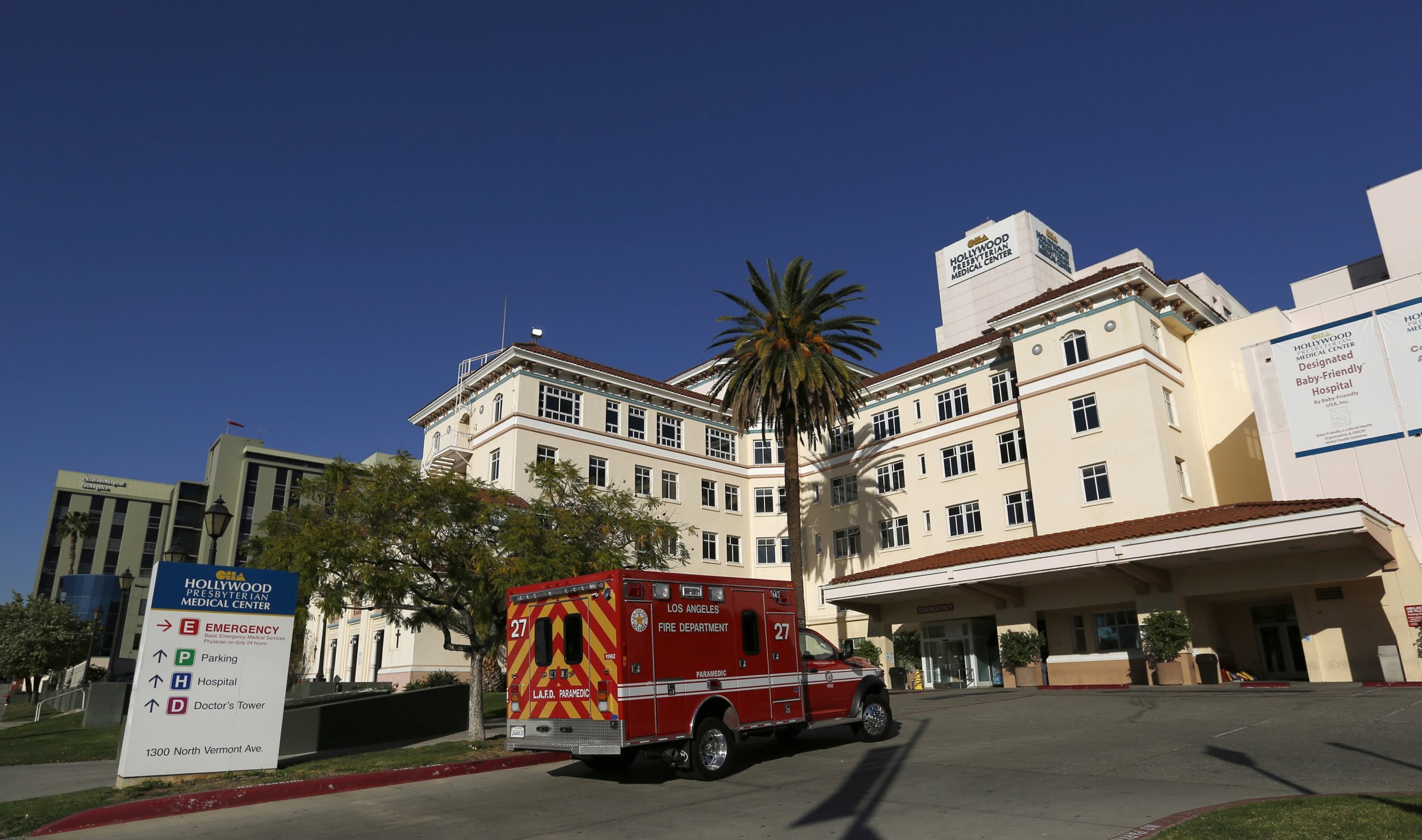
A Los Angeles hospital's decision to pay a $17,000 ransom to hackers could lead to a proliferation of cyber attacks on critical infrastructure, experts tell Newsweek.
The computer systems of the Hollywood Presbyterian Medical Center (HPMC) were knocked offline by hackers on February 5, forcing staff to resort to handwritten notes and fax machines. CT scan machines and other devices were also affected.
In a statement on Wednesday, the hospital's CEO Allen Stefanek said it was forced to pay 40 bitcoins to hackers to unlock the systems and regain access to patient's medical records.
"The quickest and most efficient way to restore our systems and administrative functions was to pay the ransom and obtain the decryption key," Stefanek said in a statement. "In the best interest of restoring normal operations, we did this."
A similar attack last month against the English county council for Lincolnshire saw hackers demand a £350 ($500) ransom. The council refused to pay it and all systems have since been restored. Experts say that succumbing to the hackers' demands, could make further attacks more likely.
"I think whenever a ransom demand is shown to work for the bad guys—meaning victims pay up—it is an incentive for criminals," independent cybersecurity expert Graham Cluley tells Newsweek.
"Paying up is definitely not a good thing to do in my opinion. But if an organisation has failed to keep properly secured backups I can understand how they might feel they have no alternative."
Dan Wiley, head of incident response and threat intelligence at the security firm Check Point, believes that attacks like the one against HPMC are likely to increase in scope as they are relatively simple to perform and the payoff was quite high.
All experts agree more needs to be done to prevent such attacks from taking place in the first place. One way of protecting against these types of ransom demands is to make sure data is securely backed up, otherwise they risk facing a "business ending event". Adam Kujawa, head of malware intelligence at Malwarebytes, tells Newsweek that each successful attack leads to more dangerous versions of malware to be developed.
"Can we point the finger at Hollywood Presbyterian for making the problem worse? Well at least they did it for the sake of being able to help sick people by getting their operations back online," Kujawa says.
"The truth is, companies and users have been paying off criminals using this kind of threat for years and this is just another example of the bad guys winning because the victims failed to take action before it was too late."
Uncommon Knowledge
Newsweek is committed to challenging conventional wisdom and finding connections in the search for common ground.
Newsweek is committed to challenging conventional wisdom and finding connections in the search for common ground.
About the writer
Anthony Cuthbertson is a staff writer at Newsweek, based in London.
Anthony's awards include Digital Writer of the Year (Online ... Read more
To read how Newsweek uses AI as a newsroom tool, Click here.








